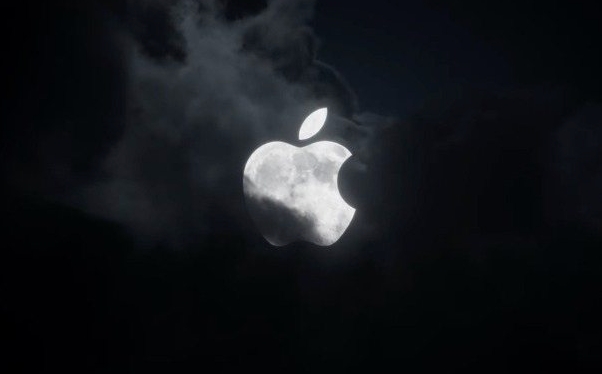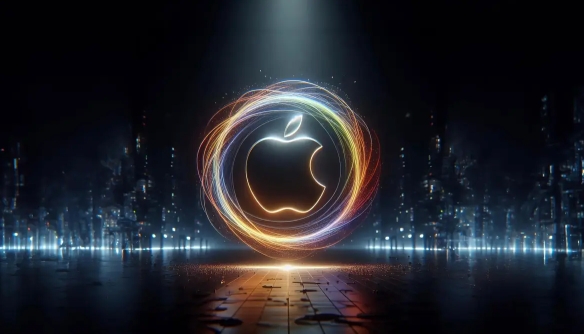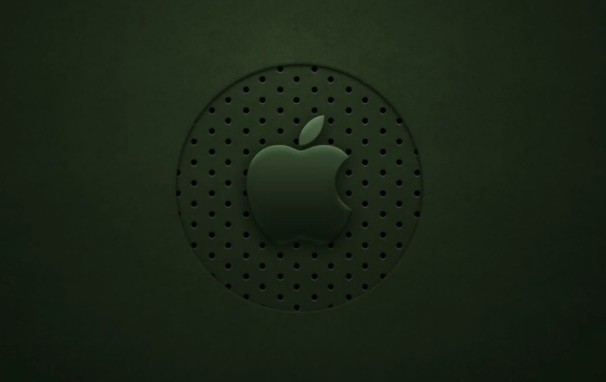Downgrading to macOS Ventura requires backup of data, preparation of installation media, and wiping and reinstalling the system. The first step is to use Time Machine or external devices to fully backup the information to ensure recovery; the second step is to download the Ventura installer on another Mac and use terminal commands to create a boot USB flash drive; the third step is to insert the USB flash drive and use the disk tool to restart it and wipe the main disk and select Ventura installation; the fourth step is to avoid restoring system settings or manually importing files when recovering data through Time Machine after the installation is completed and check application compatibility and system updates. The entire process requires careful operation details to ensure a smooth downgrade.

Downgrading from macOS Sonoma to Ventura is actually a relatively niche but there are indeed needs that people encounter, such as some software incompatibility, hardware driver problems, etc. If you encounter a similar situation and want to return to a more stable version of Ventura, the following steps and precautions can help you operate smoothly.

Backing up data is the first step
Always back up all important data before starting any system downgrade operations. Sonoma to Ventura Unlike normal updates, the downgrade process requires the disk reinstallation of the system, which means that your current system files and user data will be cleared.

You can use Time Machine for a complete backup, or you can manually copy key information to an external hard drive or cloud drive.
What should be noted is:
- Ensure sufficient backup equipment capacity
- Verify that the backup is complete and restoreable
- If Time Machine is used, it can be used to restore the entire system environment in the future
Prepare the Ventura installation media
The downgrade of macOS is not achieved through "rollback", but reinstalling the old version of the system . You need to create a boot USB drive for macOS Ventura to install the system.

The specific operations are as follows:
- Find a Mac that is already running Ventura or later
- Prepare a USB drive of 16GB or above
- Download the official Ventura installer (available on the Apple official website or the Mac App Store)
- Use the terminal command
sudo /Applications/Install\ macOS\ Ventura.app/Contents/Resources/createinstallmedia --volume /Volumes/你的U盤名to create a boot disk
When you are done you will get a USB boot disk that can install Ventura independently.
Erase the disk and install Ventura
After inserting the boot USB drive, restart the Mac, press and hold the power button at startup until you enter the boot options interface, and select your USB drive to boot.
Next, go to the macOS utility interface, select Disk Utility, find your main disk (usually Macintosh HD), and erase it. Select the format for Mac OS extension (log style) or decide based on your original settings.
After completion, close the Disk Utility, select "Install macOS Ventura", and follow the prompts to complete the installation step by step.
Recover data and settings
After the system installation is complete, you can choose to restore data from Time Machine, or manually copy the previously backed up data back.
If you use Time Machine:
- There will be options during installation to allow you to restore from Time Machine backup
- Be careful not to restore the system settings directly, otherwise some Sonoma-specific configurations may be brought in to cause problems.
- Recommended to recover only personal files and application data
If you recover manually, remember to check:
- Is the application compatible with Ventura
- Do some system preferences need to be readjusted
- Make sure the security update patch is loaded
Basically that's it. Although it sounds like there are many steps, as long as you take it step by step, the entire process is not complicated, and it is easy to ignore details, such as startup disk production and partition format. With sufficient preparation and patient operation, you can return to Ventura from Sonoma successfully.
The above is the detailed content of How to downgrade from macOS Sonoma to Ventura?. For more information, please follow other related articles on the PHP Chinese website!

Hot AI Tools

Undress AI Tool
Undress images for free

Undresser.AI Undress
AI-powered app for creating realistic nude photos

AI Clothes Remover
Online AI tool for removing clothes from photos.

Clothoff.io
AI clothes remover

Video Face Swap
Swap faces in any video effortlessly with our completely free AI face swap tool!

Hot Article

Hot Tools

Notepad++7.3.1
Easy-to-use and free code editor

SublimeText3 Chinese version
Chinese version, very easy to use

Zend Studio 13.0.1
Powerful PHP integrated development environment

Dreamweaver CS6
Visual web development tools

SublimeText3 Mac version
God-level code editing software (SublimeText3)

Hot Topics
 Minimum system requirements for Windows 11
Jul 03, 2025 am 12:48 AM
Minimum system requirements for Windows 11
Jul 03, 2025 am 12:48 AM
The minimum hardware requirements of Windows 11 mainly include five aspects: 1. The processor must be from the sixth-generation Intel or Ryzen starting point or above, supports 64-bit, dual-core and above, the main frequency is not less than 1GHz, and is on the Microsoft support list; 2. At least 4GB of memory, but 8GB or higher is recommended to ensure smooth use; 3. At least 64GB of storage space, the system itself occupies about 25~30GB, and it is recommended to use SSD; 4. The TPM2.0 security module must be supported and enabled, many motherboards did not meet this condition before 2016; 5. Some users try to bypass the restricted installation may cause driver or update problems, and ordinary users do not recommend this.
 How to convert MBR to GPT for Windows 11 installation
Jul 05, 2025 am 12:39 AM
How to convert MBR to GPT for Windows 11 installation
Jul 05, 2025 am 12:39 AM
To convert the hard disk from MBR to GPT to install Windows 11, you must first back up the data and confirm that the motherboard supports UEFI; 1. Automatic conversion using Windows installation media: Insert the USB disk and boot from USB, press Shift F10 on the installation interface to open the command prompt, enter diskpart, listdisk, selectdiskX, clean, convertgpt commands to complete the conversion. This method will clear all contents of the disk; 2. Lossless conversion of non-system disks in existing Windows: Use AOMEIPartitionAssistantStandard and other tools to right-click to convert to GPT disk. It is still recommended to backup data before operation;
 This copy of the Install macOS application is damaged
Jul 06, 2025 am 12:26 AM
This copy of the Install macOS application is damaged
Jul 06, 2025 am 12:26 AM
The "InstallmacOS is corrupted" prompt is usually caused by security mechanisms rather than file corruption. Common reasons include unofficial download sources, incomplete files, failure to verify signatures in the old system, or misjudgment of Gatekeeper; solutions include: 1. Forced opening of the installer through terminal commands and starting the USB flash drive; 2. Temporarily closing Gatekeeper verification; 3. Remount the installer and delete kernelcache file repair permissions; ways to avoid problems include prioritizing the use of official channels to download, verify the SHA256 value, selecting a trusted third-party site, and avoiding modification of the installation content.
 How to check if Windows is activated and genuine
Jul 09, 2025 am 12:54 AM
How to check if Windows is activated and genuine
Jul 09, 2025 am 12:54 AM
1. Check the activation status in the settings; 2. Use the command prompt to check the activation status; 3. Check whether there are watermarks or restrictions; 4. Verify whether the system is genuine. To confirm whether Windows is genuine and activated, first open "Settings" → "System" → "About" → "Activate" to view the status, and it is normal to display "Windows is activated"; secondly, you can run the commands wmic and slmgr with administrator permissions to view the license details; if the desktop has a "Activate Windows" watermark, it means that it is not activated; finally, use "Windows Specifications" to confirm that the system type is retail or OEM version, and use Microsoft's official tools to verify the authenticity of the system.
 Windows 10 installation stuck on logo
Jul 06, 2025 am 12:01 AM
Windows 10 installation stuck on logo
Jul 06, 2025 am 12:01 AM
When booting the computer and logging in the Windows 10Logo interface is usually not damaged by hardware, but rather an error in system file loading. 1. Wait for 15 to 30 minutes first to confirm whether it is "fake death". If there is no progress, force restart; 2. Force shut down three times to enter the recovery environment, try to start repair or enter safe mode to troubleshoot driver and software conflicts; 3. Check the hard disk bad channel, clean the memory gold fingers and replace the slot to test the hardware problems; 4. Finally, you can try to reset the computer or install the system in a brand new way to solve it, and give priority to using the official website pure ISO mirror.
 How to install Windows on a second monitor setup
Jul 17, 2025 am 02:42 AM
How to install Windows on a second monitor setup
Jul 17, 2025 am 02:42 AM
Connecting a second monitor when installing a Windows system will not affect the installation process, but the following things need to be paid attention to to ensure that the dual screens work normally: 1. There may be only one screen display during the installation process, and the main display device in the BIOS can be adjusted or the interface can be replaced; 2. After the installation is completed, select the display mode through Win P, and adjust the resolution, position and main display in the display settings; 3. If there is a black screen or unrecognizable situation, check the cable, update the driver or enter safe mode to reinstall the driver; 4. When using monitors with different resolutions, set the appropriate zoom ratio and enable the zoom repair option to optimize the display effect.
 How to back up my Mac before a macOS update?
Jul 15, 2025 am 12:33 AM
How to back up my Mac before a macOS update?
Jul 15, 2025 am 12:33 AM
Before updating macOS, you should back up your Mac. 1. Use TimeMachine to make a complete backup, insert the external hard disk and enable automatic regular backup; 2. Manually back up important files to cloud storage or external devices, and give priority to backing up documents, photos, bookmarks and other key information; 3. Create a bootable macOS installation disk for system repair or reinstallation, prepare a 16GB USB disk and run terminal commands to create. Backup can effectively prevent update failure or data loss, and it is more secure to prepare in advance.
 How to install Windows 11 without a Microsoft account
Jul 06, 2025 am 12:54 AM
How to install Windows 11 without a Microsoft account
Jul 06, 2025 am 12:54 AM
Yes, you can install and use Windows 11 without using a Microsoft account. 1. During the installation process, select "I don't have an Internet" or "Settings for Personal Use" and create a local account to skip the Microsoft account; 2. If you have installed it with a Microsoft account, you can switch to a local account in the settings; 3. You can still access all apps and system functions with a local account, but you will lose the functions of automatic synchronization between devices, cloud backup and some Microsoft store applications. Therefore, skipping Microsoft accounts is a feasible and appropriate option for users who focus on privacy or only use basics.






